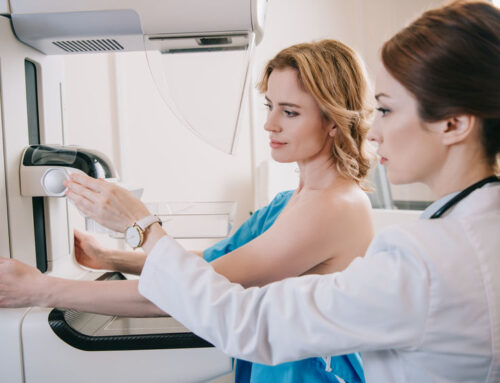The Importance Of Gut Health
Most people think the gut is only responsible for digestion, but this organ is quite complex and a fundamental part of overall health. Multiple conditions originate from the digestive tract. At the center of all this activity is the gut microbiome, a pocket in the intestines with 40 trillion good and harmful bacteria. Gut imbalances lead to the body’s inability to absorb essential nutrients. Recently, science has linked poor gut health to different female-centric disorders like infertility and osteoporosis.

A gut feeling about fertility
About 1 in 5 women struggle to get pregnant, and some of these cases of infertility may be linked to gut health. Researchers may have found a connection between repeated miscarriages and leaky gut. This intestinal issue purports that gaps in the intestinal wall allow both good and bad bacteria to escape. The resulting inflammation can contribute to a miscarriage. Gut imbalances can also lead to poor immune health and chronic inflammation, which can cause a decrease in progesterone, implantation failure, and pregnancy loss. In some cases, women with gut problems develop antibodies against sperm.
Your gut and estrogen
The gut microbiome plays a primary role in hormone production. Scientists have discovered the gut flora play an essential role in converting bound estrogen to free, active estrogen. Additionally, an entire subset of microbiomes called the estrobolome are responsible for balancing estrogen with an enzyme called beta-glucuronidase. Without a balanced diet and a healthy gut, estrogen production becomes impaired, and conditions like polycystic ovarian syndrome (PCOS) can occur. With PCOS, an imbalance of androgens like testosterone often leads to ovarian cysts, weight gain, and infertility.
Belly to bones
Osteoporosis is a significant problem 1 in 3 women and 1 in 5 men will face. This condition refers to weak or porous bone and an increased chance of fractures. While genetic factors predispose certain people to osteoporosis, there may be other triggers, like the gut microbiome. There are a few possible reasons for this connection. Poor gut health has been linked to inadequate vitamin D levels. Vitamin D is essential for synthesizing calcium, and many osteoporosis patients have low levels. While limited, some studies also show the gut microbiota may be involved in bone metabolism. Finally, an imbalanced microbiome means increased inflammation, leading to poor mineral absorption, which can negatively impact bone mass.
Get your gut in shape
There are solutions to achieving a healthier gut. One treatment option is the use of probiotics to decrease inflammation. In addition, consider dietary changes such as adding more fermented foods and drinks. Another helpful approach is reducing the consumption of red meat and improving sleep. As a precaution, see a gastroenterologist, especially if there are other gut-related symptoms. Gut microbiota testing may reveal helpful information that can improve fertility and bone health.




